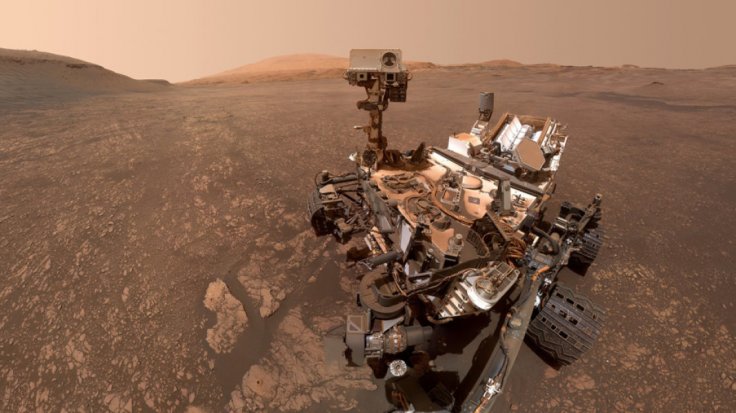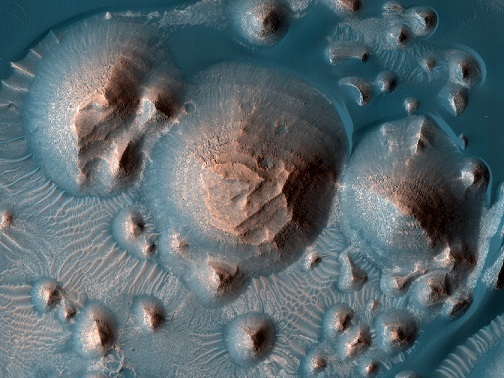While exploring Mars, NASA's Curiosity rover discovered traces of organic compounds. According to scientists, the organic molecules discovered by NASA might have descended from ancient alien life that once lived on the Red Planet.
The latest discovery made by the rover was analyzed by a couple of scientists from the Washington State University and the Technische Universität in Berlin. They presented their findings in a new study published in the journal Astrobiology.

Finding Organic Molecules On Mars
According to the scientists, Curiosity came across traces of thiophenes on the Red Planet. On Earth, these are organic compounds that can be commonly found in coal, crude oil and white truffles. For the scientists, these organic molecules could be related to ancient alien bacteria that once lived on Mars.
As explained by the scientists, a thiophenes molecule is composed of four carbon atoms and a sulfur atom that are all arranged in a ring. Since carbon and sulfur are bio-essential elements, scientists believe that the presence of thiophenes on Mars was caused by a biological process.
Theory About Mars' Microbial Life

The scientists theorized that over three billion years ago, the environmental conditions on Mars were very different. Instead of being a dry and dusty planet, scientists believe Mars was warmer and had a wetter surface. These conditions may have led to the evolution of bacteria, which could have triggered a chemical and biological process that formed thiophenes.
Although this could be a possible explanation regarding the presence of thiophenes on Mars, the study's co-author Dirk Schulze-Makuch noted that concrete evidence is still needed to prove the organic compound's biological origin. "We identified several biological pathways for thiophenes that seem more likely than chemical ones, but we still need proof," he said in a press release. "If you find thiophenes on Earth, then you would think they are biological, but on Mars, of course, the bar to prove that has to be quite a bit higher."
Proving Presence Of Alien Life On Mars
Although NASA plans to send a sample-collecting rover to Mars in July, Schulze-Makuch believes that this might not be enough to prove the presence of microbial life on the Red Planet. For the scientist, the only way this can be proven is through a human mission to Mars.
"As Carl Sagan said 'extraordinary claims require extraordinary evidence," he said. I think the proof will really require that we actually send people there, and an astronaut looks through a microscope and sees a moving microbe."








